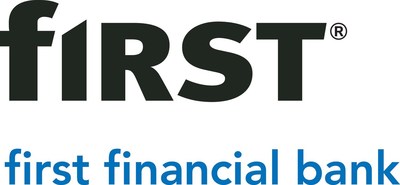First Financial Bank and National Community Reinvestment Coalition Announce $2.4 Billion Community Benefits Agreement
- None.
- None.
Insights
The new $2.4 billion Community Benefits Agreement (CBA) by First Financial Bank represents a significant commitment to low- and moderate-income (LMI) communities. This move can be seen as both a strategic business decision and a response to regulatory expectations for financial institutions to support economic inclusion. The substantial overachievement of the previous CBA goal suggests a robust framework for community reinvestment activities, which could reflect positively on the bank's reputation and customer base expansion in these demographics.
From a financial perspective, the initiative could lead to a diversified loan and investment portfolio. However, it also entails a careful balancing act, as investments in LMI areas carry different risk profiles compared to traditional banking activities. The bank's risk management strategies and the performance of these investments will be crucial in maintaining financial stability and shareholder confidence.
Moreover, shareholders and investors will be interested in the impact of such agreements on the bank's profitability. While the long-term benefits include potential market growth and risk mitigation through diversification, the short-term financial returns may not be immediately evident. It's important to monitor how the bank plans to measure the success of this CBA, beyond the capital allocation, to understand its implications on future financial results.
First Financial Bank's CBA initiative is an example of how private financial institutions can play a role in addressing economic disparities. By channeling capital into LMI areas, the bank contributes to economic development and job creation in communities that are often underserved by the mainstream financial system. This can have a multiplicative effect on the local economy, potentially leading to increased consumer spending and improved economic indicators over time.
The agreement aligns with broader economic trends where social impact and sustainability are becoming important to corporate strategy. This alignment could enhance the bank's competitiveness, particularly among socially conscious investors. Nonetheless, the effectiveness of such CBAs in generating economic growth should be evaluated against the opportunity cost of alternative investments and the potential need for increased provisions for credit losses, which could affect the bank's balance sheet.
In the context of the banking industry, CBAs like the one undertaken by First Financial Bank can be a strategic tool for market differentiation. The bank's focus on LMI communities can attract customers who prioritize doing business with socially responsible institutions. This could potentially increase the bank's market share in a niche segment. Additionally, the positive public relations impact of exceeding its previous CBA goals by 192% could enhance the bank's brand value and customer loyalty.
However, the success of such agreements depends on the bank's ability to effectively assess and manage the needs of LMI clients, who may require different financial products and services than traditional clients. The bank's adaptability and innovation in product offerings will be key to realizing the potential benefits of the CBA. It would be insightful to analyze customer feedback and satisfaction levels among LMI clients served under the previous CBA to gauge the potential for continued success under the new agreement.
"Our new Community Benefits Agreement is a bold statement about how First Financial intends to continue its mission to improve lives and help communities thrive," said Archie Brown, president and CEO of First Financial. "These are neighborhoods where we live and work, and we are taking a leading role in helping our neighbors achieve goals and improve their financial wellbeing."
"First Financial exceeded the goals we set together in our previous CBA and agreed to continue this strategic collaboration by negotiating new commitments to low- and moderate-income communities," said NCRC President and CEO Jesse Van Tol. "These new commitments will directly improve the material conditions of under-resourced neighborhoods within the bank's footprint. Every bank should take notice and embrace the same collaborative approach that First Financial continues to take on these issues."
First Financial's goals under the new CBA include:
$700 million $600 million $1.07 5 billion$18 million $9 million - Commitment to a minimum source-able vendor spend of 25 percent with minority-owned business enterprises (MBE), women-owned business enterprises (WBE), disability-owned business enterprises (DBE) and veteran owned businesses by 2028,
$1.2 million
"We have much to accomplish under this new agreement and already have a head start working in many of these areas," said Roddell McCullough, chief corporate responsibility officer for First Financial. "Our previous CBA was an incredible success, touching thousands of lives for the better. I am excited at the prospect of helping many more individuals, families and businesses in the next five years."
First Financial's commitment to its communities over recent years was further validated when it achieved a rating of Outstanding from the Federal Reserve Board in 2021 for its performance under the Community Reinvestment Act (CRA). This rating, the highest available, came after a broad evaluation of First Financial's lending, investment and service levels from 2017-2020. The review specifically looked at First Financial's work that benefitted customers who met income guidelines or resided in LMI census tracts.
About First Financial Bancorp.
First Financial Bancorp. is a
About NCRC
The National Community Reinvestment Coalition is a network of organizations and individuals dedicated to creating a nation that not only promises but delivers opportunities for all Americans to build wealth and live well. Learn more at ncrc.org.
![]() View original content to download multimedia:https://www.prnewswire.com/news-releases/first-financial-bank-and-national-community-reinvestment-coalition-announce-2-4-billion-community-benefits-agreement-302047635.html
View original content to download multimedia:https://www.prnewswire.com/news-releases/first-financial-bank-and-national-community-reinvestment-coalition-announce-2-4-billion-community-benefits-agreement-302047635.html
SOURCE First Financial Bancorp.








